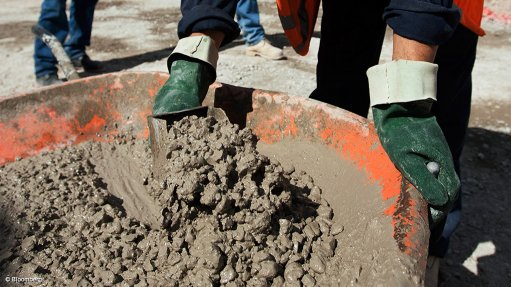
Companies have to diversify and expand their businesses, as they can no longer rely solely on South Africa for income, PPC Cement MD Richard Tomes said on Tuesday at the opening plenary session of the Totally Concrete and African Construction expos, in Sandton.
He stated that owing to factors such as low growth forecasts, high inflation rates, service delivery problems and industrial action in the platinum sector “South Africa is not a happy place at the moment”.
“Those companies who are solely relying on the South African market, I think, are dying a slow death,” Tomes said, adding that this was why PPC was diversifying its business to target more African countries.
He further highlighted that South Africa currently had a more than 30% cement supply capacity surplus, stating that even if the country’s economy grew by 8% a year, South Africa would still only run out of cement in 2020.
“This gives even more reason for a company like PPC to spread its wings and search for greener pastures,” Tomes said.
He added that PPC was bullish about Africa as "the last growth frontier" and was encouraged by the continent’s growth prospects and the fact that one could now operate much more easily in countries where it had previously been impossible.
PPC would be investing $1-billion in projects in Algeria, Rwanda, Ethiopia, the Democratic Republic of Congo (DRC) and Zimbabwe “over coming years”, Tomes pointed out.
In Algeria, PPC had entered the market through the acquisition of a 49% interest in the Hodna Cement Company, which had been investigating the development of a two-million-ton-a-year facility.
Tomes said Algeria provided a favourable cost environment owing to low electricity prices.
Meanwhile, in the DRC, PPC had a 69% shareholding in the development of a one-million-ton-a-year facility.
Tomes pointed out that currently cement selling prices in the DRC were between $280/t and $400/t, which was more than double that of cement in South Africa. When viewed with production costs, PPC estimated that it could make more than 50% profit through this operation.
Further, PPC was also refurbishing its existing 51%-owned cement production plant in Rwanda and expected to start its Zimbabwe development project later this year.
Tomes pointed out that while Zimbabwe had a small economy, the country would soon run out of cement production capacity as no investment had been made in this space, and PPC would be well positioned to take advantage of this.